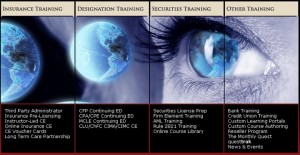As a large Credit Repair Company, We feel the pain of negative press every day. So in an effort to help many consumers that could in fact benefit from Credit Repair we are going to address many of the myths that are out there about Credit Repair.
Myth #1 Credit Repair is Illegal.
The truth: Credit Repair is in fact so legal that congress passed a law called the Credit Repair Organization Act or CROA it can be viewed herehttp://www.ftc.gov/os/statutes/croa/croa.shtm
Myth #2 Credit Repair Companies are all scams
The truth: Many Credit Repair companies in fact are very good and reputable companies as in all professions a few bad apples have given the rest a bad name. In fact our company Revolution Credit Solutions Inc. has offered our services Pro Bono to victims of these bad companies. See press release here http://express-press-release.net/53/Revolution%20Credit%20Solutions…
Myth #3 Anything a Credit Repair Company can do for you, You can do for yourself.
 The truth: While you can certainly dispute items on your own, many consumers lack the knowledge about the laws in place to protect them from unfair credit reporting. Many Credit Repair Companies have an extensive knowledge of these laws and the requirements imposed on the CRA’s by them. So, while self help is certainly possible, Credit Repair is not an easy task especially in unexperienced hands. For those consumers who want a “do it yourself” solution to Credit Repair, the first step is to read the FCRA. You can read it here http://www.ftc.gov/os/statutes/031224fcra.pdf as a matter of fact, everything we do as a Credit Repair Company is done from the FCRA. Unfortunatly for most consumers the law is very hard to interpret, and they are unable to do it them self. That’s where the value of a company like Revolution Credit Solutions Inc. lies. We use no special tricks or tactics. We merely follow the law and request that the consumers creditors and the Credit Bureaus do the same.
The truth: While you can certainly dispute items on your own, many consumers lack the knowledge about the laws in place to protect them from unfair credit reporting. Many Credit Repair Companies have an extensive knowledge of these laws and the requirements imposed on the CRA’s by them. So, while self help is certainly possible, Credit Repair is not an easy task especially in unexperienced hands. For those consumers who want a “do it yourself” solution to Credit Repair, the first step is to read the FCRA. You can read it here http://www.ftc.gov/os/statutes/031224fcra.pdf as a matter of fact, everything we do as a Credit Repair Company is done from the FCRA. Unfortunatly for most consumers the law is very hard to interpret, and they are unable to do it them self. That’s where the value of a company like Revolution Credit Solutions Inc. lies. We use no special tricks or tactics. We merely follow the law and request that the consumers creditors and the Credit Bureaus do the same.
Myth #4 Credit Bureaus do a good job of being accurate, so there is no need for Credit Repair Companies.
The Truth: In spite of section 607b of the FCRA which requires the Credit Bureaus to maintain accurate files on consumers. Over 79% of Consumers Credit Reports and thats according to the P.I.R.G. ( Public Interest Research Group) a Government agency. See it here http://static.uspirg.org/usp.asp?id2=13649&id3=USPIRG
Myth #5 Credit Bureaus want to help you fix your credit by providing on line access to your report free and allowing you to dispute items electronically through their system.
The truth: Credit Bureaus make money, and lots of it by reporting and selling information the more information the more money. So by removing inaccurate or unverifiable information the Credit Bureaus lose money. The only reason they allow you to access your report free once a year is because they are forced to by the government, and as to their electronic disputes, they leave much to be desired. All too often the Credit Bureaus will make a great effort to discourage consumers from disputing inaccurate and unverifiable information because not only does it cost them income by removing these items, but they must also pay a full time staff of untold numbers to address these disputes, costing them much more money.
I hope this article has helped you have a better understanding of how a Credit Repair Company can help you in your quest for the American Dream. If you would like more information please contact us at 1-888-852-0005 and we will be happy to answer your questions.
Via EPR Network
More Financial press releases





 “Some may be tempted to keep a close eye on their bank’s finances, waiting to withdraw all their money at the first sign of trouble,†said a spokesperson for the debt management company. “Of course it’s vital to protect your investments, but it’s also important to understand the extent of the protection offered to normal savers.â€
“Some may be tempted to keep a close eye on their bank’s finances, waiting to withdraw all their money at the first sign of trouble,†said a spokesperson for the debt management company. “Of course it’s vital to protect your investments, but it’s also important to understand the extent of the protection offered to normal savers.â€




















